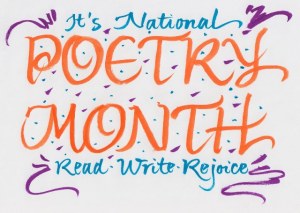(Hmm … realizing just how many of my post titles come from songs. I don’t suppose this is surprising, given how central a role music plays in my life, but it’s funny that I haven’t really noticed or called it out before.)
I’m in a book club. I think it’s fair to say that I’m the laziest member of this club. Sometimes I read the books. Sometimes I even read them all the way to the end. I wouldn’t say I do either of these things even fifty percent of the time. I enjoy the group, and I always intend to do better, but … well, the world is always and always getting in the way of me and my reading goals.
The group has been meeting a long time, but it wasn’t until about two years ago that I began listening to some of our book selections instead of reading them. I realized I could download audiobooks from the library onto my phone and listen during my commute or while doing housework, and it was suddenly far more likely that I’d see my way through to the end of book picks I wasn’t passionate about.
That was my secret: listen to the books I didn’t think I’d like so I could do something else at the same time and feel productive. (Yes, this is obnoxious. I know. I know.)
For the most part, this has worked pretty well. There have been some notable exceptions. I managed to suffer through the recording of Neil Gaiman and Terry Pratchett’s Good Omens despite an awful, awful reader who drove me nuts through the whole book. And then there was the total fail of The Plot Against America. Something about Ron Silver’s voice and the utter creepiness of the book in relationship to our current political climate made listening impossible, almost nightmare-inducing. I shut that down right away.
The success of audiobooks really lies in the reader’s voice and reading style choices. A bad voice and I can’t concentrate. Wacky decisions about how to pronounce things or changing the voice for different characters, and you’ve lost me. I hate all those made up voices. Just read. Let me fill in the character distinctions. That was the problem with the Good Omens reader. He made really irksome voices for the characters when he should have just told me the story.
It has turned out that I’ve actually loved many of the books I thought I wouldn’t. Elizabeth Kolbert’s The Sixth Extinction is depressing and enraging, but amazing and interesting and well-written. I enjoyed Malcolm Gladwell’s David and Goliath so much it set me to listening to all of his books. And it’s interesting that the Gladwell audiobooks work for me. I don’t like Gladwell’s voice. But he reads his work so perfectly, that he’s the only person I’d want to hear reading, and he makes the books that much more interesting.
The book we’ll be discussing next weekend is Daniel James Brown’s The Boys in the Boat. I really can’t articulate how much I loved this book … except to say that I’m about the start my third listen. Seriously. I loved it that much. In part because the book is great, but also because I love Edward Herrmann as the reader. I wish he had recorded all books I might ever want to listen to. He was a fine, fine reader.
But also, Brown has written a wonderful book. He does some things as a writer that I find comical and eventually annoying, but mostly, the book is gold. The story is compelling, the people are likable, he got me interested in a subject — crew racing — that I have given just about no thought to. I’m sure reading this book is also enjoyable, but I’d actually recommend listening because of Herrmann’s excellent recording.
I know I’m not only a lazy book-clubber but also super late to the table when it comes to audiobooks. I should have known that I would like listening to books. I love to be read to. Love, love, love it. So naturally, a good audiobook would please me.
And thank goodness I’ve made this happy discovery. My new commute is always very crowded. The train doors open, and there’s barely enough room to squeeze myself into the throng, definitely no room for pulling out a book. Being able to disappear through my headphones makes that sardine-can ride so much easier to manage.
Do you listen to audiobooks? What do you like or not like about them? Do you have particular kinds of books you prefer to listen to rather than read, or particular readers you’ve come to love?
It’s the annual Slice of Life Story Challenge over at Two Writing Teachers! With hundreds of folks participating, there’s more than a little something for everyone … and plenty of room for you to join in!



